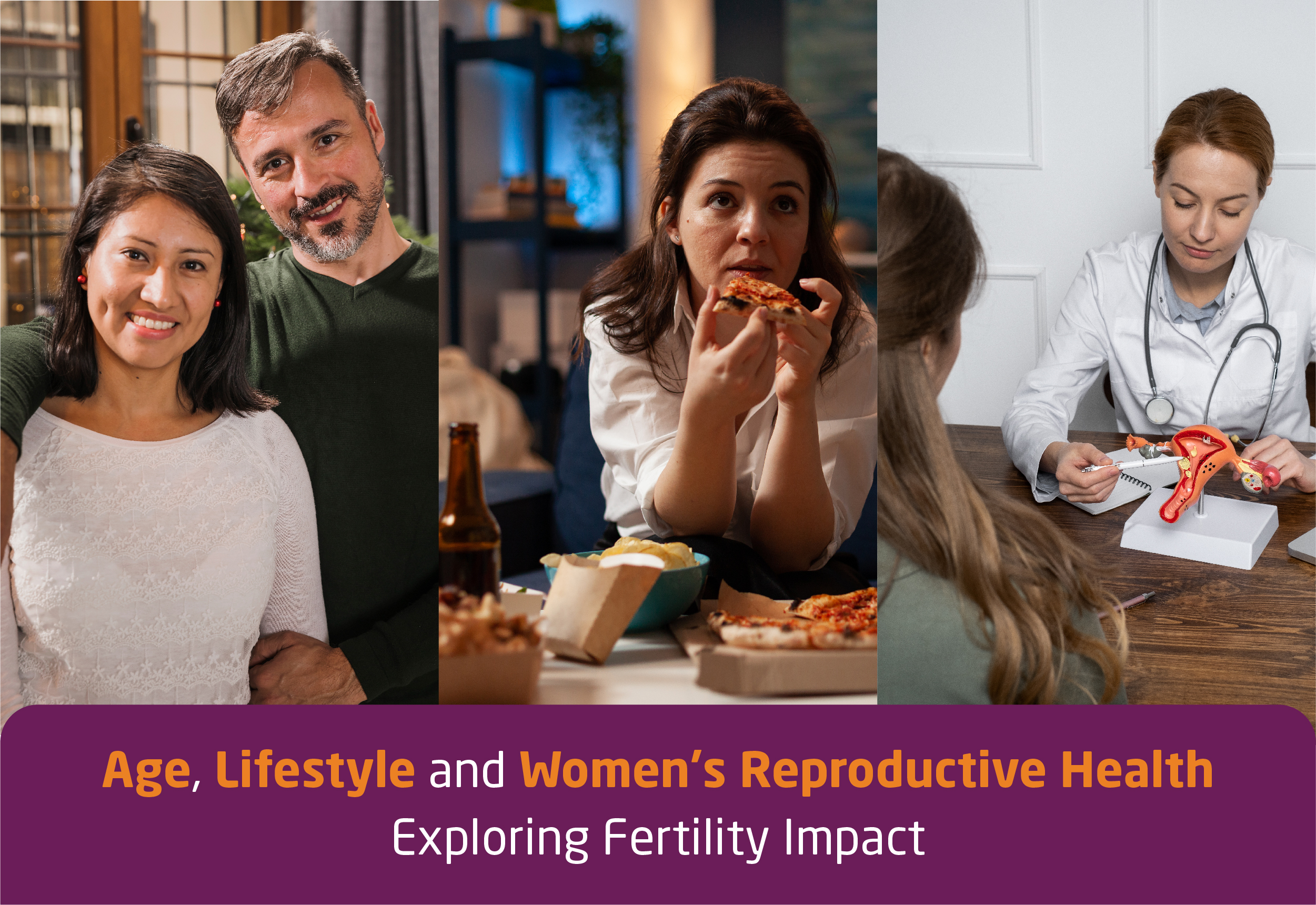Introduction:
Women’s reproductive health is a multifaceted domain that depends on age and lifestyle decisions. Understanding how different life stages interrelate and influence women’s fertility is crucial as they age. This paper entices such relationship by discussing how age, lifestyle choices, and women’s health are interrelated and affect fertility.
Must Read: Why does a woman’s fertility decline with age?
Age and Fertility:
Among biological parameters defining women’s fertility, age is considered one of the most important ones. A women’s fertility is at its peak in her twenties and decreases among the subsequent decades. At 35, fertility decreases dramatically, affecting both the quantity and quality of eggs. After 35, the decline in women’s fertility speeds up. In their forties, fertility reduces even more. Thus, conception becomes more difficult. The risk of infertility or pregnancy complications due to age increases.
There are several causes of the reduction of fertility with age. One such cause is the depletion of the ovarian reserve, literally meaning the amount and quality of ova remaining in the ovaries. Since women lose eggs over time, the amount of probability of conception decreases . The second cause of the reduction of female fertility with age is the hormonal changes that influence the menstrual cycle and ovulation .
Lifestyle Factors and Fertility:
Young age, of course, increases women’s of reproductive potential, but except this factor, lifestyle also plays the significant role. There exist several lifestyle factors, which can either stimulate or hinder the fertility; therefore, the women should lead the healthy way of life to improve the ability of conception.
Diet and Nutrition:
Firstly, a correct diet is necessary for the proper reproductive health. Foods rich in nutrients, vitamins, and minerals can balance the woman’s hormone levels . Nutritional deficiencies can cause disruptions in menstrual cycle; therefore, fertility-friendly foods are fruits, vegetables, whole grains, and lean proteins .
Weight and Body Mass Index (BMI)
Being underweight and overweight can affect fertility. The low BMI is bound to irregular menstrual cycles with ovulatory dysfunction. Hormone balance can be disoriented by the obesity status of the woman leading to the development of other conditions such as PCOS. It is important to involve exercises combined with balanced diet to stay healthy.
-
Smoking and Alcohol Consumption
Smoking and excessive alcohol consumption are responsible for decreased fertility and poor reproductive performance. In women, cigarette accelerates aging of the ovaries and large blood vessels, and consequently decreasing the ovarian reserve of the female, the risk of unpredictable termination of pregnancy and decreased fertility. In addition, alcohol has also been associated with increased disruption in the hormone levels thereby impairing the reproductive function of the female . To improve fertility, the woman should quit smoking and reduce her intake of alcohol.
-
Stress Management
High levels of stress hormones are likely to have negative effects on fertility, therefore, it is expected that the HPOA is disrupted. The high glucocorticoids levels would inhibit the ovulation process because they largely affect the menstrual cycle . Ovulation is key to fertility and if it is reduced, then fertility is also lowered. The levels of hormones could be managed and fertility improved through meditation, yoga, and mindfulness .
-
Environmental Exposures
Exposure to environmental poisons such as pesticides, chemicals, and pollutants that interfere with the endocrine system is related to the disruption of reproductive function and fertility. Fertility can be preserved by reducing exposure to these poisons by selecting organic products, reducing plastic use, and maintaining a clean interior environment.
Conclusion:
There is no question that age and lifestyle have a profound impact on women’s reproductive health and fertility. Women’s awareness of biological processes helps them make informed health choices and maintain their well-being. With their knowledge, women can maintain their health and fertility through regular screenings and timely interventions.

